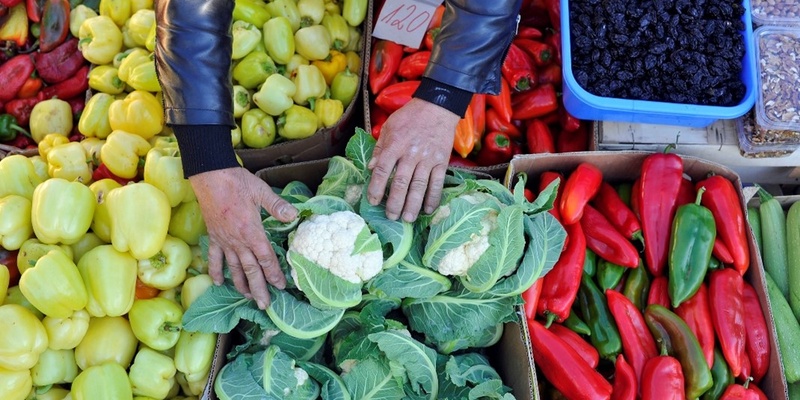BLOG: Greater action needed to protect plant health as global hunger rises
Posted on Wed, 26 Jul 2023, 17:19

© FAO/Oliver Bunic
By Osama El-Lissy, IPPC Secretary
The latest report on food security and nutrition from the Food and Agriculture Organization is concerning. In 2022, as many as 783 million people across the globe faced hunger. Global hunger rose from 7.9 percent in 2019 before the pandemic to 9.2 percent in 2022. Around 122 million more people experienced hunger and undernourishment than the previous year. This is obviously far from reaching the global goal of a zero-hunger world.
With these numbers in mind, we must turn things around and do it quickly. Along with many factors affecting global food security, plant health remains a vital component. When 40 percent of global crops are destroyed by pests, this sets back not only food supplies, but also impacts trade, economies and livelihoods of the most vulnerable populations. For instance, the presence of Fusarium Tropical Race 4, a bacteria that quickly spreads and decimates banana plantations, affects smallholder and large-scale farmers, growers, traders and consumers, impacting the entire supply chain of a single but widely traded commodity.
To prevent the entry and spread of plant pests and safeguard agricultural crops, it is critical that plant health standards, tools and resources are available for national plant protection organizations (NPPOs) to implement.
International Standards for Phytosanitary Measures (ISPMs) are designed to do just that. From standards on conducting pest risk analysis, surveillance, reporting, monitoring and responding, to the use of wood packaging in shipping goods, to phytosanitary treatments and diagnostic protocols, ISPMs are set in place to protect global food security. These standards also help protect biodiversity and the environment which are essential for healthy crops to grow. Furthermore, ISPMs help prevent the movement of pests through shipping containers which could potentially carry harmful pests across international borders and introduce them to agricultural lands.
Innovative tools are important in protecting plant health. The IPPC ePhyto Solution is a tried and tested method of exchanging digital phytosanitary certificates between importing and exporting countries, making trade safer from the entry of plant pests. The Phytosanitary Capacity Evaluation (PCE) is another tool that helps NPPOs assess their national phytosanitary systems and staff capacity to prevent and manage pest incursions. In Nicaragua, PCE helped the government revise outdated phytosanitary laws which are critical in implementing plant health standards. The IPPC publishes a wide range of guides and training materials, as well as e-learning courses to enhance NPPO’s capacity to better understand and implement the standards and provisions of the International Plant Protection Convention.
But we need to do more. We need governments and donors to invest in programmes, research, capacity building and in paving career paths for the next generation of plant health stewards. New and updated phytosanitary legislation will also be a solid foundation for implementing ISPMs and the Convention.
We need the expertise of scientists, researchers and industry actors to create knowledge, harness technology and develop innovative tools to more effectively prevent and counter the damages from plant pests. We need farmers to see the value and adopt integrated pest management, reducing reliance on pesticides that could harm human health and the environment.
We need the media to broadcast messages and influence the public on how they see and act towards protecting plant health at the individual level, for instance, in being mindful of bringing plants and plant products when travelling or buying them online without a phytosanitary certificate.
I believe we can do better in reversing the trend in global hunger and food insecurity. We have the mechanisms to do so and the commitment to follow through on our mission to protect the world’s plants. Together with the IPPC community, I hope you will join us in this noble endeavor and collectively work towards a zero-hunger world.

